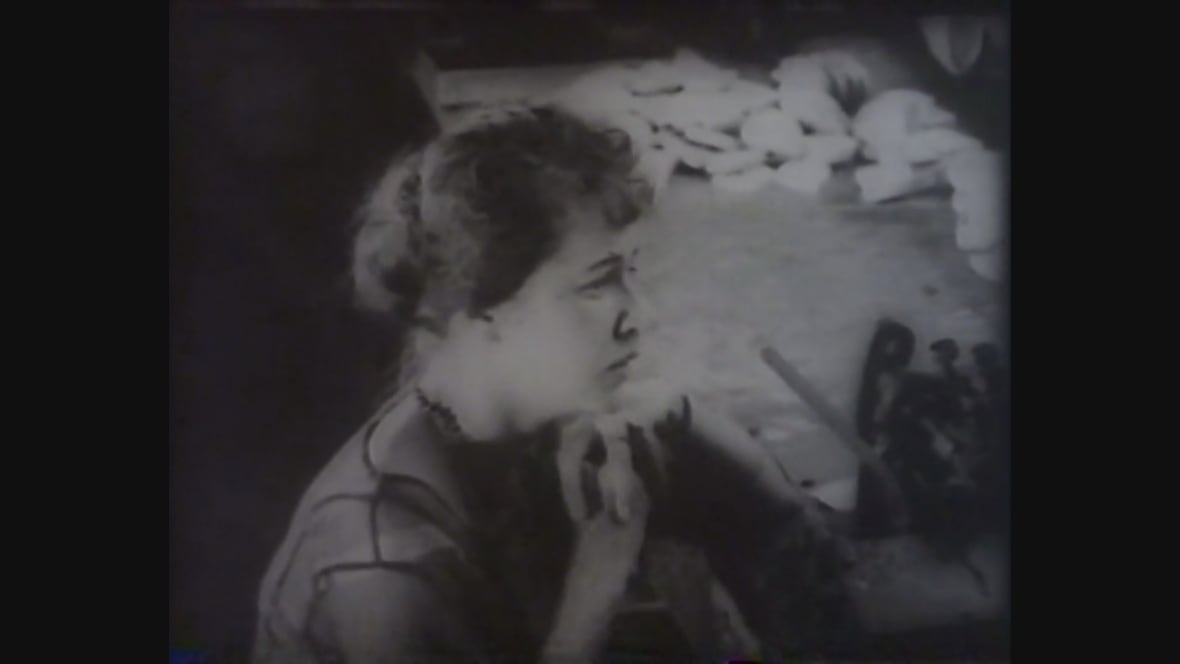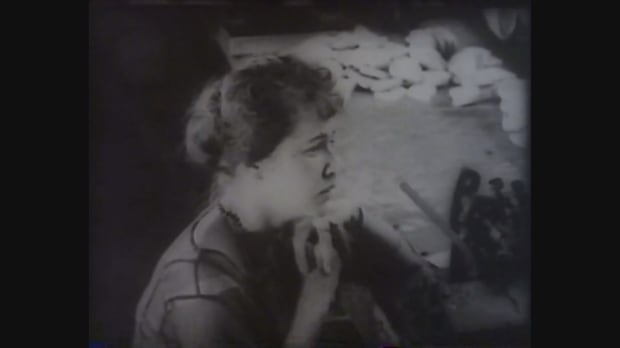The forgotten Canadian film bureaus that cranked out morality tales about being a good worker
Historian says Canada was the first in the world to make government-sponsored films
The 1922 film Her Own Fault begins with Mamie waking up exhausted in a stuffy room and, as the silent film title card tells us, "starting the day wrong."
Things go downhill from there. She doesn't wash, runs late for her factory job, stoops uncomfortably over her work and spends the evening "seeking excitement" in a crowded dance hall.
The result, the film tells us in one of its final title cards, is that she "gets what is coming to her": tuberculosis.
The morality tale is one of 15 short silent films currently streaming on "The Moving Past," a website created by Toronto historian David Sobel.
Sobel built the site last year to house digitized versions of films made by two short-lived and nearly forgotten government film companies: the Ontario Motion Picture Bureau and the Canadian Government Motion Picture Bureau.
The two companies cranked out hundreds of films between 1918 and 1929, before sputtering to a stop during the Depression. The Canadian Government Motion Picture Bureau was later absorbed and replaced by the National Film Board.
"Canada was the first country in the world to have government-sponsored films made ... and I thought it would be fun for people to be able to go to the website and watch," Sobel said in an interview with CBC Toronto.

Less fun, or at least less easy, is the process to get them there, which involves Sobel driving to Ottawa to visit the National Archives and screen the films before paying himself to have them digitized and edited.
"I've had some discussions with the Archives where I'm saying, you know, really you should be sending these films for free because I'm promoting you. But we'll see," he said.
'Very particular ideas about class'
The result of all that time spent on Highway 401 is a collection of films showing a snapshot of work, life and culture in Ontario and Canada — many of them geared toward providing moral instruction about being clean, healthy and productive.
Take Someone at Home from 1925, which introduces us to irresponsible electric utility lineman Jim.
"That particular film is actually a safety film, so it gets into how dangerous [that kind of work] was," Sobel said.
After suffering a careless on-the-job accident that lands him in the hospital, Jim realizes he should take precautions at work, winning back a fiancée who is on the verge of leaving him for good.
Other films in the uploaded collection aim to promote and spread new ideas and innovations, such as purpose-built playgrounds for children.
The Educational Playground from 1922 first briefly shows us unsupervised children on the street before laying out the "unconditional success" of playgrounds, where "healthy amusement" can be found in pursuits like baseball, boxing and folk dancing.
University of Toronto professor Sarah Bay-Cheng, who studies the intersection of technology and theatre, says these kinds of societal snapshots are rare.
"During World War II, a lot of historical films were melted down for the silver nitrate. So we've actually lost, in Canada, significant film archives," Bay-Cheng said. "So it's great to have some of these."
In fact, as Sobel notes on his website, the films were very nearly destroyed in the 1930s, but were bought by a priest to show his congregation and later stored in a barn near North Bay, Ont., for three decades before being rediscovered.
Bay-Cheng also says the educational intent of the films on the Moving Past website exposes some of 1920s society's most entrenched ideas.
"There are very particular ideas about class, particularly related to hygiene. So bathing comes up in a lot of these films. There's a lot of descriptions and depictions of brushing your teeth, of eating well, of [asking] what makes a good worker," she said.
Sobel's hope is to continue growing his online collection until it numbers in the hundreds, starting with six new digitized titles set to be uploaded in the fall.
With files from Talia Ricci
